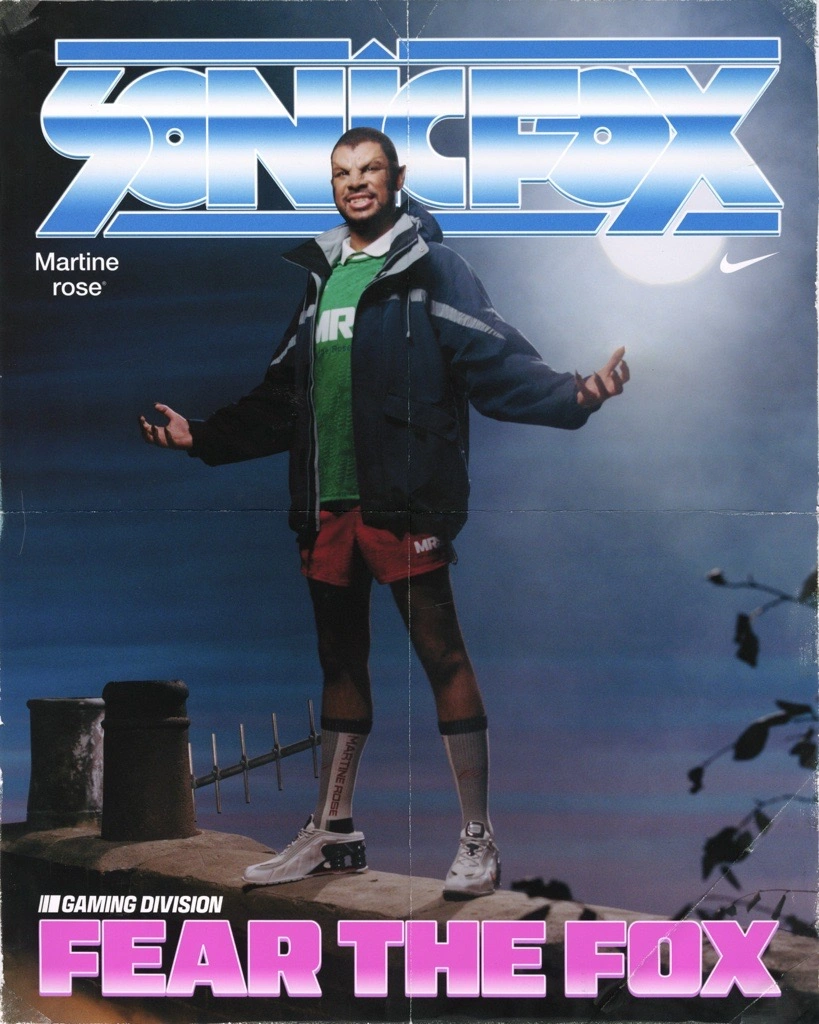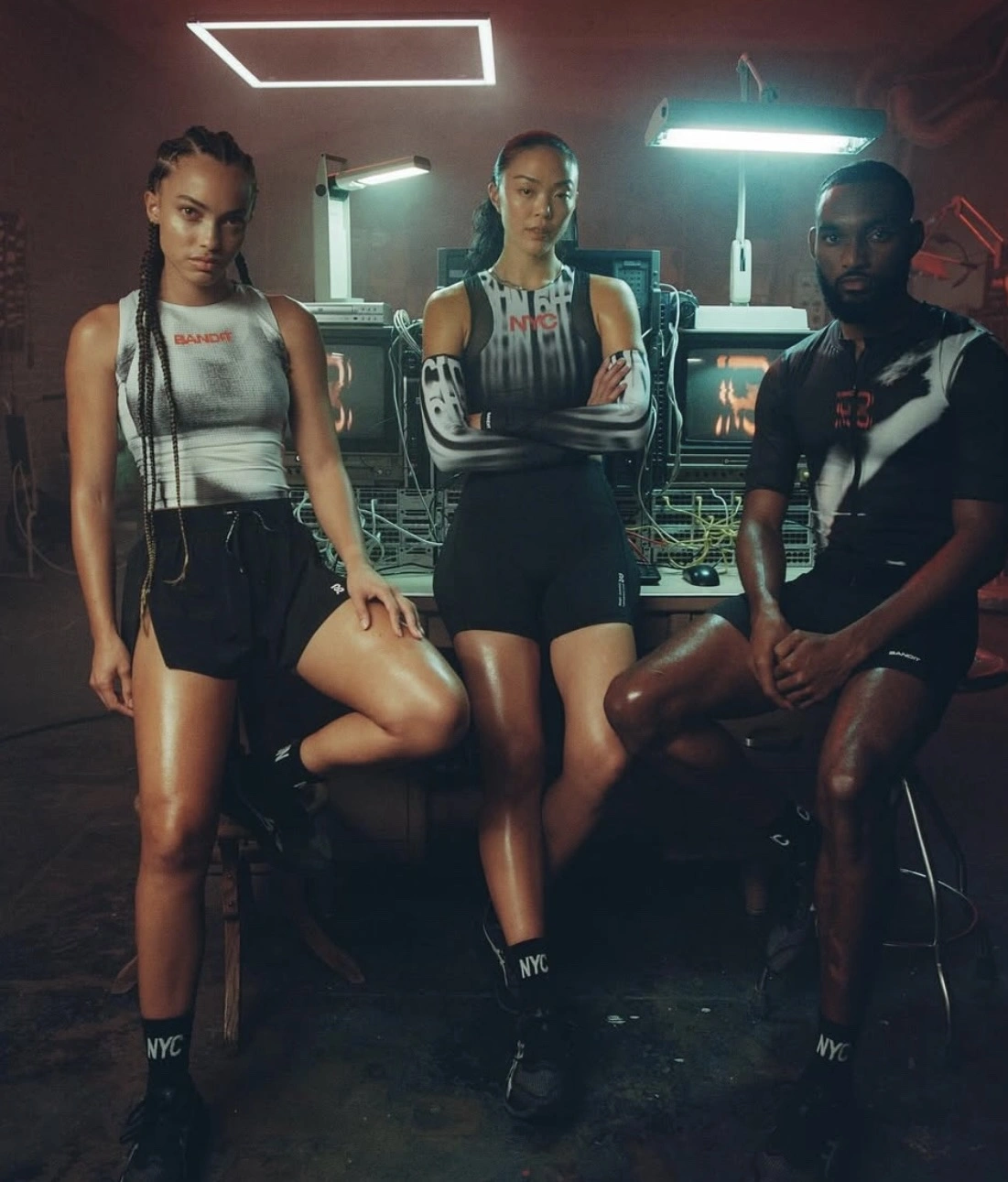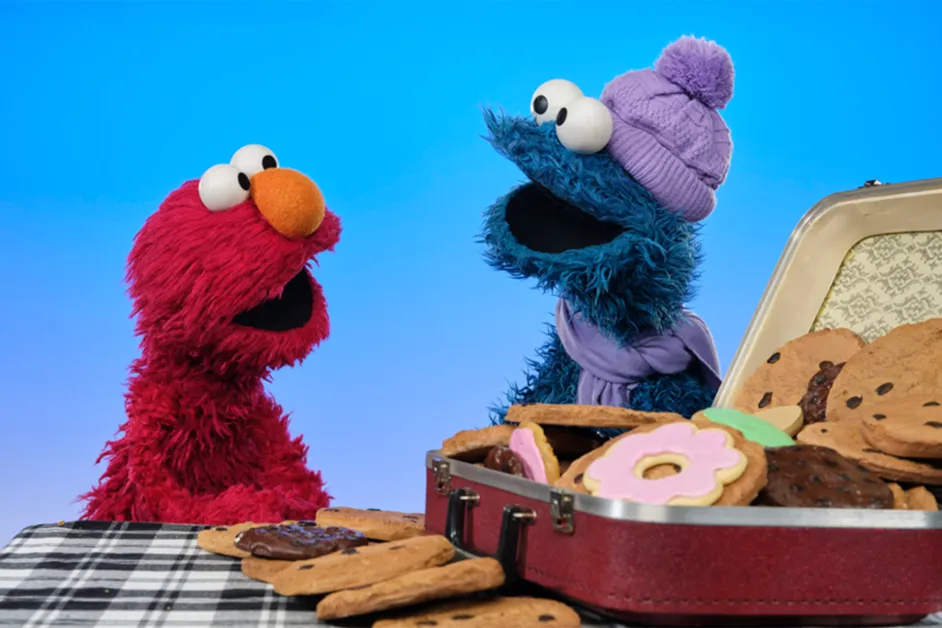There’s a specific thrill that comes from watching Poorna Jagannathan command the screen—not just through sheer talent or charisma, but through the precision of her choices. Every glance, every breath, every silence feels intentional, steeped in lived-in humor or hard-earned wisdom. So when she appears in Hulu’s absurdist comedy series Deli Boys as a deadly serious, deeply complex antagonist with a love for violence and designer footwear, you get the sense the role was custom-built for her brand of chaos.
And if you ask her about her favorite moment in the series? It’s exactly what you’d expect: “Beating the living daylights out of Tan France in heels,” she says, deadpan but gleaming. “That’s not a sentence you get to say every day.”
The Scene: High Heels, High Impact
The now-viral scene in question occurs midway through the season, as Jagannathan’s character, Rashmi Chopra, tracks down a double-crossing Tan France (playing a wildly fictionalized version of himself) in a rooftop garden full of succulents and judgmental brunchers. Clad in a silk blazer and four-inch stilettos, Rashmi calmly stalks across the terrace, stares France down, and delivers a series of merciless slaps, kicks, and verbal smackdowns.
The juxtaposition is electric: a fashion darling and a fictional kingpin locked in an unexpectedly physical standoff. “It’s like Succession meets Kill Bill, but make it couture,” Jagannathan jokes. “And Tan was so game. He’s wildly committed. The man knows how to take a hit.”
She’s not wrong. The fight choreography, though stylized and comedic, is tightly constructed, flipping the usual action dynamic on its head. France doesn’t land a single blow. Rashmi doesn’t break a sweat. And by the time it’s over, viewers are left with one undeniable takeaway: do not cross Poorna Jagannathan in heels.
A Character With Layers (and Knives)
But Rashmi Chopra is far more than a high-kicking villainess. The role, written specifically with Jagannathan in mind by series co-creators Abdullah Saeed and Nisha Ganatra, is a subversive riff on a crime boss archetype—equal parts elegant and feral, maternal and monstrous.
“I was drawn to how non-flat she was,” Jagannathan explains. “So many roles written for South Asian women fall into either complete virtue or absolute caricature. Rashmi has a broken heart, a brutal history, and a whole lot of weapons hidden in very expensive handbags.”
In early episodes, Rashmi seems like your typical shadowy powerbroker: stoic, stylish, and terrifying. But as the series progresses, her contradictions emerge. She’s a grieving widow, an estranged mother, a woman who built an empire while shielding her pain behind layers of sarcasm and perfectly tailored coats.
“There’s something devastating about a woman who’s been underestimated for so long, she just decides to run the city,” Jagannathan says. “And then decides to burn it down when it doesn’t love her back.”
Poorna’s Comedy Code
Though best known for her searing dramatic performances (The Night Of, Delhi Belly, Never Have I Ever), Jagannathan’s comedic instincts are sharp and deeply unassuming. Her timing is dry, surgical, and often hits when you least expect it.
“I don’t think comedy is about being funny,” she says. “It’s about being true. The laugh comes when people see themselves in something absurd. And Rashmi is absurd—she’s larger than life—but everything she does comes from a place of real pain or desperation.”
Deli Boys thrives in this tonal balancing act. The show oscillates between slapstick, satire, and sincere family dynamics with ease. Jagannathan, whose character is often tasked with grounding scenes soaked in wild plot turns, plays it like a highwire act.
“There were days when I’d go from threatening someone with a knife to delivering a monologue about colonial trauma to hosting a baking competition,” she says. “All in one episode. And it all made perfect sense.”
Tan France: The Willing Target
And then, of course, there’s Tan France. The Queer Eye star, cast as an unhinged, petty, and strangely power-hungry version of himself, is Rashmi’s unexpected foil throughout the series. Their chemistry is electric because it shouldn’t work—but it does.
“Tan is the last person you’d think would take on a role that involved being beaten up by a South Asian woman in Louboutin boots,” Jagannathan laughs. “But he threw himself into it. And made himself very available for slaps.”
France, for his part, has spoken about how Deli Boys let him push his comfort zone. “Poorna hit me so hard—emotionally and physically—that I might actually be a better actor now,” he joked during a panel at SXSW.
The absurdity of their dynamic—a psychotic fashion icon and a grieving criminal empress—only deepens the show’s commitment to turning representation on its head. “We’re not symbols,” Jagannathan insists. “We’re people. Messy, funny, brilliant, and violent people.”
South Asian Identity Without Explanation
What makes Deli Boys radical isn’t just that it stars South Asian actors—it’s that it doesn’t bother to explain itself. There are no glossary moments, no winking acknowledgments to white audiences. The show, and Rashmi especially, simply is—unapologetic, untranslated, and completely immersive.
“Deli Boys doesn’t care if you get every reference,” Jagannathan says. “It’s made for the people who’ve lived it. Who grew up with aunties who made six figures but still believe in the evil eye. Or who wear Chanel and carry their own chutneys in their Birkin bags.”
For her, the joy of playing Rashmi was in the contradictions. “She’s deeply traditional and wildly progressive. She quotes Gita one second and Goodfellas the next. That complexity is real. That’s how we live.”
The Craft of Chaos
From a craft perspective, building Rashmi meant toggling between stillness and sudden violence. Jagannathan worked with fight choreographers to ensure her movements felt intentional, efficient, and emotionally charged.
“She doesn’t flail,” Jagannathan says. “She doesn’t perform pain. Every move is calibrated. She’s not showing off—she’s surviving.”
Even the heels were a choice. “We joked about switching them out for the fight scenes,” she says, “but I insisted on keeping them. It’s part of her armor. Her power comes from being unfazed.”
The result is a character that moves like a panther—silent, deliberate, but always ready to pounce.
Legacy Roles, But Not Legacy Tropes
As Deli Boys gains cult status, Jagannathan reflects on the long road to roles like Rashmi—parts that honor both her talent and her complexity.
“I’ve been in this industry for a long time,” she says. “There were years where the only roles I got were grieving mothers or exotic neighbors. Then suddenly, there’s this character who’s grieving, yes, but also plotting assassinations, stealing hearts, wearing fur, and screaming about the lack of cumin in an heir’s biryani.”
For younger actors of color watching Deli Boys, Rashmi is a revelation. A blueprint. A sign that identity on screen doesn’t have to be palatable—it can be unhinged, funny, brutal, and achingly real.
“Characters like this make space,” Jagannathan says. “They blow the doors off and let others walk through.”
A Scene to Remember
And yes, beating up Tan France in heels is still her favorite scene. “How could it not be?” she grins. “It’s the most joyful, bizarre, empowering thing I’ve ever done on screen. I mean, really—how many women get to kick the crap out of a fashion mogul while wearing designer boots and quoting Khalil Gibran?”
She pauses, then adds, “That’s Rashmi. That’s Deli Boys. We make the surreal feel inevitable.”
No comments yet.









